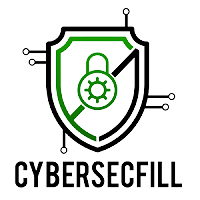Every October, I like to remind people that cybersecurity is not just about complicated tech terms or fancy tools. It’s really about the small everyday things that keep you and your data safe.
Just like locking your doors before going out, cyber hygiene is something you do consistently, not occasionally.
And you know what the good news is? You don’t have to be a cybersecurity expert to stay safe online.
Here are ten simple habits that can protect your online presence everyday.
Use a Password Manager
Remembering every single password is impossible. That’s why password managers exist. They help you create strong, unique passwords and keep them safe in one place. You only need to remember one master password, and the rest are handled for you. It’s like having a secure notebook where everything is stored.
Don’t Use the Same Password Everywhere
Please don’t. Using the same password across multiple accounts is one of the easiest ways to get hacked. If one account is compromised, everything else becomes vulnerable.
Different passwords for different sites might sound like a lot, but if you’re using a password manager, it’s easy.
Turn On Two-Factor Authentication (2FA)
This one extra step can save you a lot of trouble. Even if someone steals your password, 2FA adds a second lock, usually a code sent to your phone or an authentication app.
It might take a few extra seconds, but it’s worth every single one of them.
Update Your Devices When Prompted
I know, those update notifications can be annoying. But most updates come with security patches that fix known vulnerabilities.
When you ignore them, you’re basically leaving your doors open for hackers who already know where the weak spots are. So, next time your device says “Update available,” don’t snooze it, just do it.
Think Before You Click
This is one of the most important habits you can develop. Be careful with links, attachments, and random messages even if they look like they’re from someone you know.
Phishing emails are getting more convincing. If something feels off, pause. Verify before you click. A few extra seconds of caution can save you from falling for a scam.
Back Up Your Files
Sometimes, we don’t think about backups until it’s too late. Whether it’s your photos, work documents, or school files, make sure you back them up regularly, either to the cloud or an external drive. Because when things go wrong (and sometimes they do), you’ll be glad you did.
Lock Your Devices
Your phone and laptop hold so much of your personal life, from messages and photos to bank apps. Use a strong password, PIN, or biometric lock. Don’t make it easy for anyone to get in.
Install Antivirus or Anti-Malware Software
Even if you’re careful online, it’s always good to have an extra layer of protection. Antivirus tools quietly run in the background, scanning for anything suspicious. It’s like having a security guard who never sleeps.
Secure Your Wi-Fi Network
Your home Wi-Fi is very important, don’t leave it open.
Always change the default password on your router and set a strong Wi-Fi password. The default one is usually weak, and keeping it is like using a stick instead of a proper lock to secure your door.
Keep Learning
This one’s personal for me. The more you understand cybersecurity, the less it feels like a scary, technical thing.Follow credible pages, read short articles, and take a few free courses because knowledge is your best defense.
Final Thoughts
The internet connects us to everything, work, family, business, community, but that connection comes with responsibility.
You don’t have to overhaul your life. Just start with one or two of these habits today.
The goal is not perfection, it’s progress.
Stay safe and remember that small habits build strong defenses.
